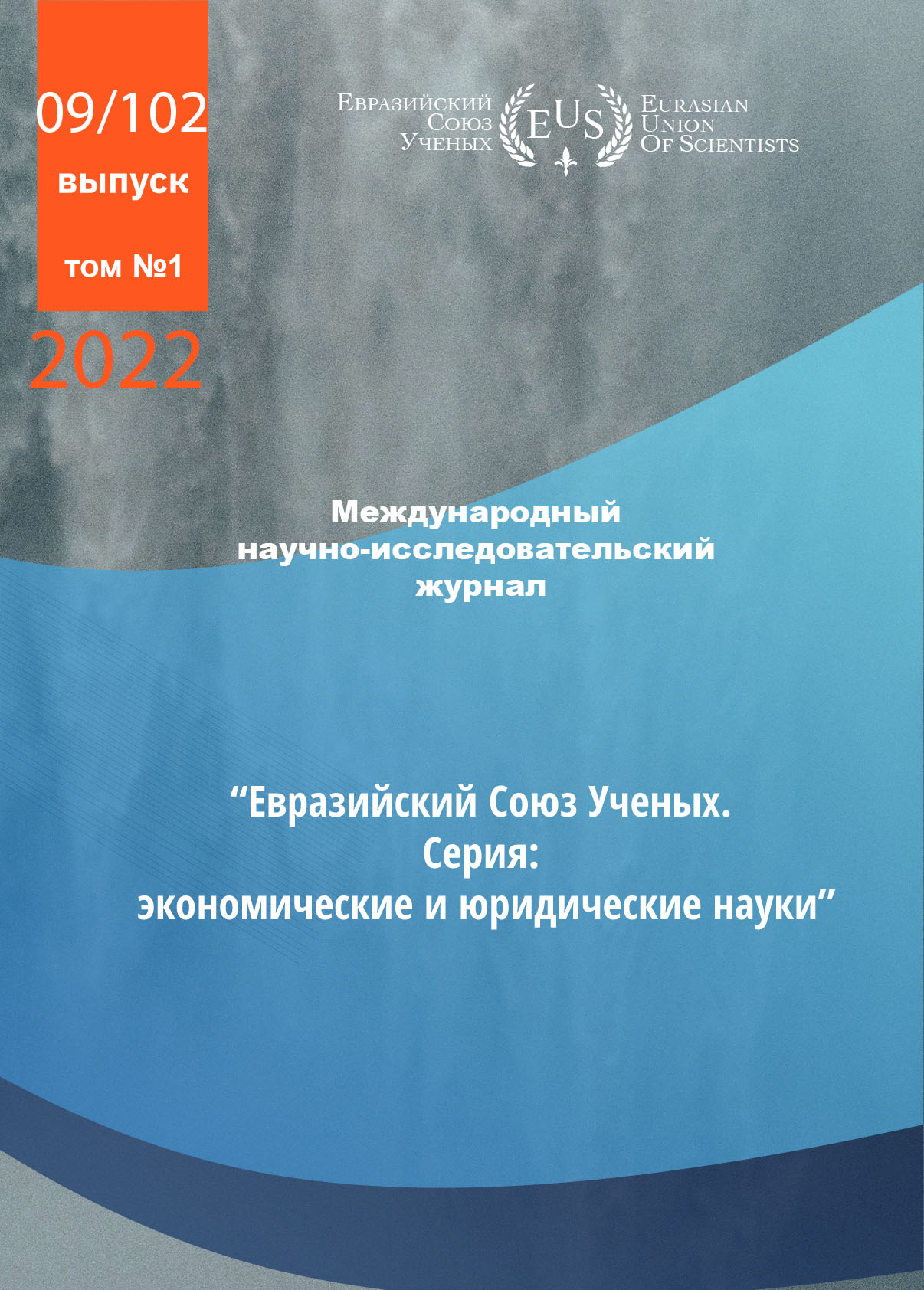PROBLEMS OF REFORMING GLASNOST AS ONE OF THE CONSTITUTIONAL FOUNDATIONS OF CRIMINAL JUSTICE
Abstract
In the article, the author presents an essential analysis of the legal nature of publicity as one of the
constitutional fundamental foundations of criminal justice.
The key manifestations of publicity in the criminal proceedings of the Russian Federation are analyzed. The
contradictions arising between theoretically fixed normative provisions and their practical implementation are
revealed. The features and problems associated with the use of this category in the judicial process are identified.
The author's view on the concept and content of the legal phenomenon under study is given, his own definition is
formulated. And in practical examples, legislative nuances that need clarification are indicated.
The author comes to the conclusion that the current version of the article of the criminal procedure law
regulating the phenomenon of publicity of criminal proceedings no longer meets the modern realities and
requirements of law enforcement practice, especially in the conditions of permanently developing information
technologies and achievements of modern scientific progress.
In this regard, he proposes to fix its definition in the Criminal Procedure Code of the Russian Federation as
one judicial constitutional beginning of the entire criminal process as a whole, as well as a separate article of the
general rules of its application in order to overcome the legal vacuum in the field of information security of its
participants.
References
2. Convention for the Protection of Human Rights and Fundamental Freedoms (Concluded in Rome on 04.11.1950) (with amendments dated 24.06.2013) //
Collection of legislation of the Russian Federation. 2001. No. 2. Article 163.3.
3. Constitution of the Russian Federation of 12 Dec. 1993: with amendments approved during the allRussian vote on 01.07.2020 // URL:
http://www.pravo.gov.ru (accessed 05.05.2022).
4. The Criminal Procedure Code of the Russian Federation of 18.12.2001 No. 174-FZ (ed. of 25.03.2022, with amendments. from 04/19/2022) // URL: http://www.pravo.gov.ru (date of appeal 05.05.2022).
5. ECHR Ruling of 06.06.2017 Case "Pichugin (Pichugin) v. the Russian Federation" (complaint No. 38958/07). // URL:
https://europeancourt.ru/spisokreshenij-evropejskogo-suda-prinyatyx-po-zhalobamprotiv-rossii/spisok-reshenij-evropejskogo-sudaprinyatyx-po-zhalobam-protiv-rossii-v-oktyabre-2012-goda/#Pichugin (accessed 05.05.2022).
6. Ruling of the First Cassation Court of General Jurisdiction No. 77-4800/2021 of December 14, 2021 // URL: https://sudact.ru/regular/doc (date ofappeal: 11.05.2022).
7. Ruling of the second Cassation Court of General jurisdiction No. 77-153/2022 of January 18, 2022 // URL: https://sudact.ru/regular/doc (accessed:05/11/2022).
8. Alimova A.A. [Criminal proceedings of Russia in modern conditions] // [ Law and order in Russia: problems of improvement. XV All-Russian Conference: collection of articles]. Moscow. 2021. pp. 326-329.
9. Blinnikov V.A., Chernikov S.S. [Glasnost as a principle of criminal proceedings ] // [Interuniversity Criminalistic Forum. Collection of materials from the
forum within the framework of a scientific project]. 2019. pp. 16-21.
10. Volodkov S.A., Sizova S.O. [The validity (necessity) of the allocation of publicity of the parties in criminal proceedings ] // [Student Bulletin]. 2020. No. 19-3 (117). pp. 71-73.
11. Gribunov O.P., Gaponova V.N., Nikiforova E.V. [Implementation of the principle of publicity in modern criminal proceedings ] // [Izvestiya Tula State
University. Economic and legal sciences]. 2021. No. 2. pp. 14-21.
12. Prostakova A.A. [ International legal foundations of the principle of transparency of legal proceedings] // [Scientific Leader]. 2021. No. 36 (38). pp. 63-66.
13. Ramazanov R.M. [Closed court session as an independent security measure of participants in criminal proceedings ] // [ Bulletin of the Udmurt
University. Economics and Law series]. 2021. Vol. 31. No. 2. pp. 286-290.
14. Website of the Orenburg District Court of the Orenburg region // URL: http://orenburgsky.orb.sudrf.ru (accessed 05.05.2022)
CC BY-ND
A work licensed in this way allows the following:
1. The freedom to use and perform the work: The licensee must be allowed to make any use, private or public, of the work.
2. The freedom to study the work and apply the information: The licensee must be allowed to examine the work and to use the knowledge gained from the work in any way. The license may not, for example, restrict "reverse engineering."
2. The freedom to redistribute copies: Copies may be sold, swapped or given away for free, in the same form as the original.







